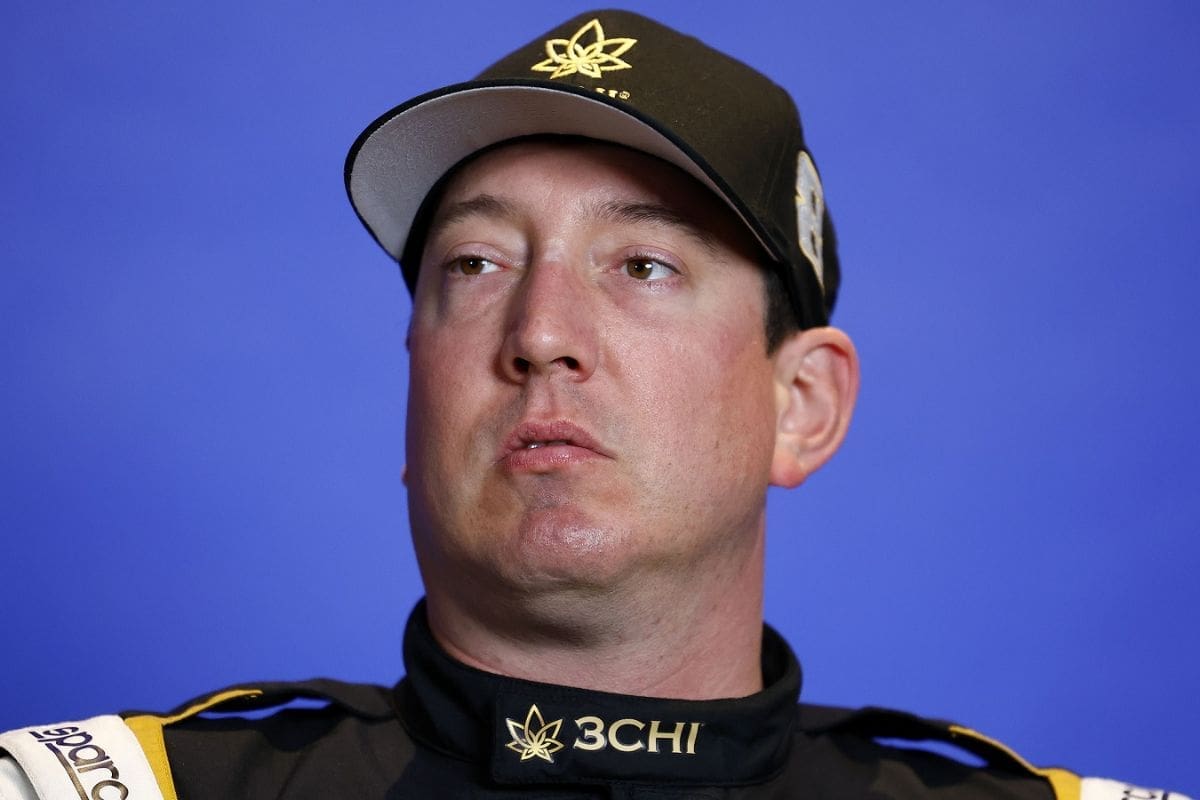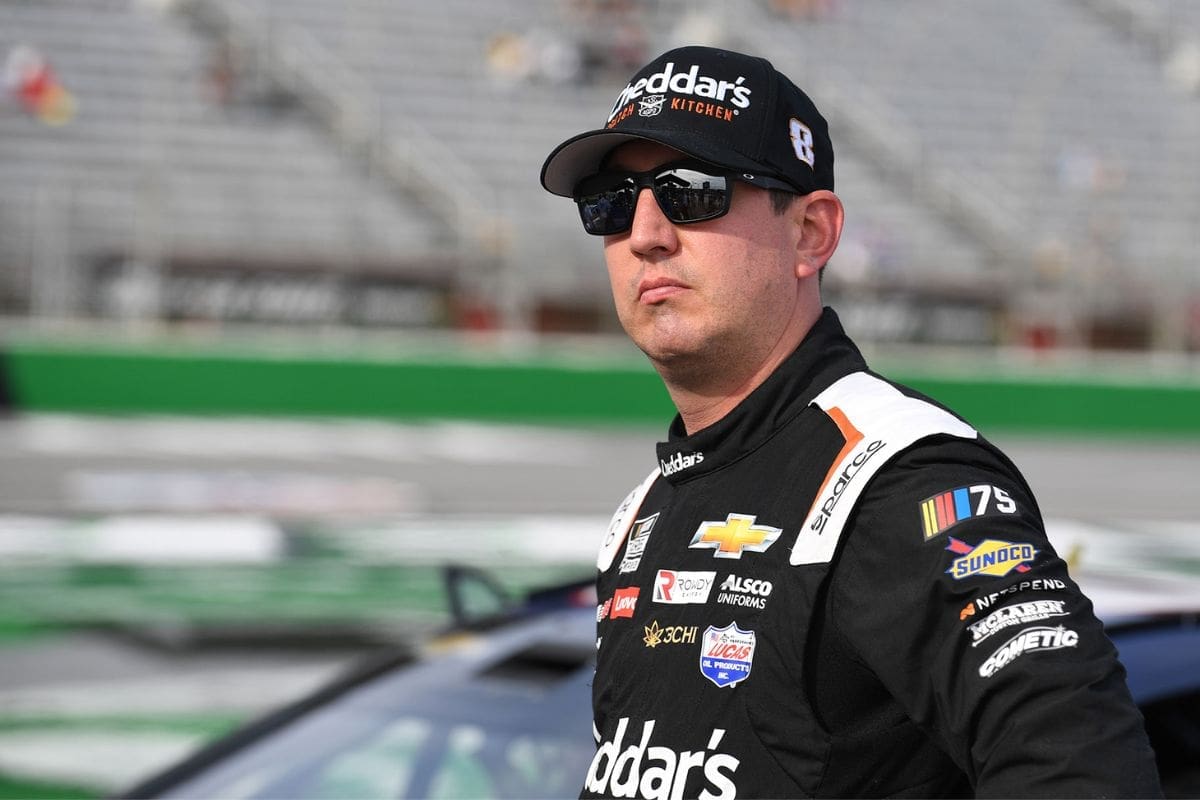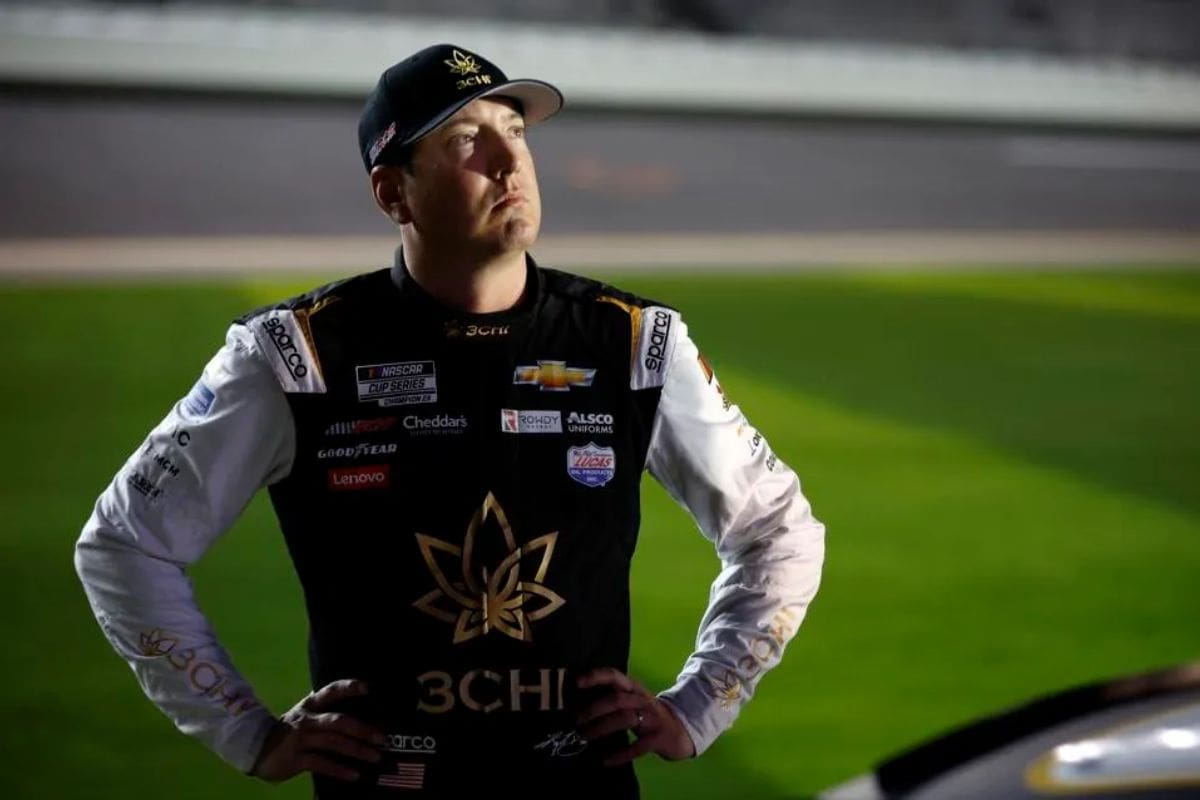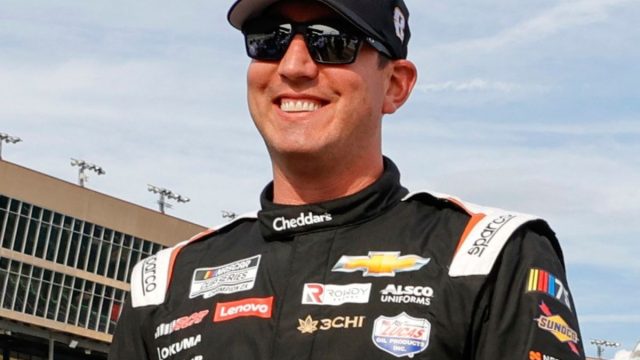Kyle Busch Uncovers Toyota Dominance: Kyle Busch, a seasoned NASCAR driver, sheds light on Toyota Racing Development’s standout performance, particularly on short tracks where their cars exhibit unmatched power, agility, and endurance. Toyota’s strategic focus on performance enhancements, coupled with its commitment to innovation, has positioned it as a dominating force in NASCAR. Busch’s insights, drawn from his extensive experience, highlight Toyota’s technology advancements and a collaborative culture that fosters problem-solving and continuous improvement. This approach has evidently put Toyota ahead of competitors, including Chevrolet. Shifting to the #8 Chevy, Busch faces challenges in reproducing this dominance but acknowledges the critical roles of tire management. For those seeking a deeper understanding of NASCAR dynamics, Busch’s perspective reveals significant factors behind Toyota’s success.
Key Takeaways
- Toyota’s success on short tracks attributed to balance of power, agility, and durability.
- Toyota’s culture of information-sharing boosts problem-solving and innovation in NASCAR.
- Kyle Busch highlights Toyota’s technological advancements for superior speed and dexterity.
- Toyota’s investment in R&D and attracting top talent key to its dominance.
- Differences in vehicle setup and design philosophies between Toyota and Chevy impact short track performance.
Richard Childress Racing’s Recent Performance
Richard Childress Racing’s performance in the recent NASCAR Cup Series season, highlighted by Kyle Busch’s essential role, showcases a mixture of challenges and triumphs for the team. Despite the competitive nature of the series, Richard Childress Racing managed to secure three victories, all thanks to Busch’s exceptional driving of the #8 Camaro ZL1. This achievement not only emphasized Busch’s adaptability and skill but also signified a critical moment for Richard Childress Racing, marking their presence in the highly contested 2023 Manufacturers rankings.
Analyzing Richard Childress Racing’s performance, it becomes evident that the team faced a steep uphill battle throughout the season. With Chevrolet attaining a total of 18 wins, RCR’s contribution of three victories to this tally highlights a broader narrative of competitive perseverance and strategic execution. Busch’s victory at the World Wide Technology Raceway in June 2023, his 63rd Cup Series win, was a confirmation to the symbiotic relationship between driver and team, showcasing their ability to excel under pressure and secure wins in a highly competitive sport.
The implications of these victories are multifaceted. On one hand, they emphasize Richard Childress Racing’s capacity to compete at the highest levels, leveraging Busch’s exceptional talent. On the other, they highlight the challenges that the team faces in consistently matching the pace of their rivals. Despite these hurdles, RCR’s achievements in the 2023 season reflect a strategic acumen and a relentless pursuit of excellence, qualities that are indispensable in NASCAR racing. As the team looks to build on this performance, the role of strategic adjustments and continued innovation cannot be overstated, setting the stage for future endeavors in the Cup Series.

Toyota Racing Development’s Dominance on Short Tracks
Toyota Racing Development’s dominance in NASCAR, especially on short tracks, highlights a strategic mastery that has placed them ahead of competitors, including the 2024 Richard Childress Racing Chevrolets. The distinct approach Toyota has taken towards optimizing their vehicles for the unique demands of short track racing emphasizes a broader philosophy of specialization and adaptation that has become a hallmark of their racing strategy.
Kyle Busch’s insights into Toyota’s superiority on these tracks have showed not just the performance gap but also a visible flaw in the 2024 Richard Childress Racing Chevrolets, which struggle to secure top-10 finishes in similar conditions. This revelation is not merely about driver skill but points to a deeper, systemic advantage Toyota has engineered. Their vehicles exhibit a remarkable balance of power, agility, and durability—qualities that are critically amplified on short tracks where the margin for error is greatly reduced.
The challenge faced by the 2024 Richard Childress Racing Chevrolets on short tracks can be attributed to several factors, but Toyota’s emphasis on targeted performance improvements has undeniably set them apart. Through meticulous data analysis and continuous feedback loops with drivers, Toyota Racing Development has crafted cars that not only push the boundaries of speed but also offer enhanced agility and tire management—key components for short track success.
This strategic advantage is the result of a thorough understanding of the unique dynamics at play in short track racing. Toyota’s ability to translate this understanding into tangible performance gains highlights a commitment to innovation and excellence. It is this relentless pursuit of mastery that continues to position Toyota at the forefront of NASCAR, particularly in environments that test the limits of automotive engineering and driver skills.
Kyle Busch’s 2024 Performance
Steering through the 2024 NASCAR season, Kyle Busch’s performance trajectory has displayed a combination of resilience and challenge, especially emphasized by his difficulty to reproduce Toyota’s short track dominance while driving the #8 Chevy. Despite securing a commendable third-place finish at Atlanta behind Ryan Blaney, Busch’s endeavors to clinch top-10 finishes have been largely unfruitful, particularly on short tracks. This contrast in performance when compared with his previous affiliations highlights a notable shift in dynamics within his racing strategy and adaptability. Rowdy has only cracked the top 10 once, scraping his way to a 9th place finish at the road race in COTA, just before the Toyota Owners 400.
Seems like the #8 Chevy is holding its own on the big, fast tracks and those twisty-turny road courses. But when it comes to the shorter tracks, Kyle Busch reckons the Toyotas are leading the pack this year. He reported at SpeedFreaks’ YouTube channel, chatting it up about the matter. The first short track showdown went down at Phoenix Raceway, even though some folks might call it more of an in-between track with its 1 mile-long layout.
This divergence not only challenges Busch’s adaptability but also puts a spotlight on the engineering and strategic planning behind the scenes. The quest for short track competitiveness becomes a multifaceted puzzle, incorporating elements of tire management, braking efficiency, and chassis setup. Achieving harmony among these variables is essential for short track success, a feat that Toyota has seemingly mastered.
But when it came to the much-hyped short track showdown at the Shriners Children’s 400, things didn’t quite go Kyle Busch’s way. He ended up way back in 22nd place, which had to sting a bit. Adding salt to the wound, it was Christopher Bell in the #20 Toyota who crossed the checkered flag first. Crash Gladys, never one to hold back her feelings, brought up this twist of fate while chatting about the interview, expressing her own frustrations.
“Can we talk about the short package with the cars that you guys have now? I was frustrated at Phoenix, it seemed like Toyota had an edge over what you guys have with Chevy. Is it a manufacturer thing?” – (Crash Gladys)

Busch’s Insights on Manufacturer Disparity
Exploring the intricacies of manufacturer performance, Kyle Busch recently brought attention to the significant difference between Chevrolet and Toyota, especially in the context of short track racing. His insights shed light on the underlying factors contributing to Toyota’s dominance, illuminating the competitive landscape in motorsports. As a seasoned driver with experience behind the wheels of both manufacturers, Busch’s perspective offers a unique lens through which to understand these disparities.
In dissecting the performance gap, several key points emerge:
- Toyota’s Technological Advancements: Toyota has consistently pushed the envelope in racing technology, particularly in areas essential for short track success. This includes improvements in aerodynamics, engine efficiency, and tire utilization, which collectively enhance speed and dexterity.
- Information-Sharing Culture: Busch hinted at a more collaborative approach within the Toyota camp. This culture of openness and shared learning likely accelerates problem-solving and innovation, giving Toyota teams a competitive edge.
- Strategic Investments: Toyota’s commitment to racing is evident in its strategic investments in research and development. This not only propels their cars ahead but also attracts top-tier talent, from engineers to drivers.
- Adaptability: Toyota’s adaptability to racing conditions and regulations seems to outpace that of Chevrolet. Their ability to quickly tweak and optimize car performance in response to track specifics and rule changes has been a significant factor in their success.
“I think it’s a little bit of both.I think the Toyota guys have definitely figured out something and they’re definitely a step ahead, whether it’s their body or whether it’s just their setup or whatnot. But you know, the information share that they have going on with 23Xi and JGR, obviously they’ve got some really good stuff.”
“The information sharing, whatnot, that we have with Hendrick and stuff, you know. We were definitely a step behind, all the Chevys (that) were at Phoenix. We saw last year, both races at Phoenix being won by a Chevy, and this year it’s like if you were upfront and you had track position, you could hold it. But it was never like the Chevys were ever going forward and taking the lead, you know? So definitely seeing a discrepancy or a disparity there at that speedway.” – (Kyle Busch)
RCR’s Struggle and Future Prospects
In 2017, Ryan Newman shook the ground at Phoenix’s 1-mile “short track” with a memorable win for Richard Childress Racing (RCR) in the #31 Chevrolet. But since then, the victory lane vibes have been as elusive as a desert mirage for RCR. As the dust settles, the burning question echoes – Is the Chevy machine to blame, or are RCR’s gears grinding to a halt? Newman’s triumph in the #31 Chevrolet showcased RCR’s potential, but fast forward to recent races, and the once-potent power seems to have fizzled. Meanwhile, Austin Dillon, carrying the iconic #3, struggled to muster more than an unimpressive P18 finish, leaving fans scratching their heads and searching for answers.
In the records of NASCAR, Austin Dillon’s rise to victory at the hallowed grounds of the Coca-Cola 600 at Charlotte Motor Speedway in 2017 marked the dawn of a promising era for the #3 car. With that triumphant moment, Dillon catapulted himself into the limelight, etching his name among racing’s elite. But Dillon didn’t stop there. Three more victories followed suit, each a testament to his skill and resilience on the track. From heart-pounding showdowns to historic venues, Dillon showcased his mettle time and again, solidifying his status as a force to be reckoned with in the Cup Series.
However, as the calendar pages turned and the laps progressed, the victory lane became a distant memory for the #3 car. Despite Dillon’s valiant efforts and strong determination, the checkered flag has eluded him for almost two relentless years. In the storied halls of Richard Childress Racing (RCR), Kyle Busch’s championship victory in 2023 echoed with the resonance of racing legends. Like a phoenix rising from the ashes, Busch etched his name alongside the esteemed Dale Earnhardt, adding another chapter to RCR’s glorious history.
Yet, as the 2024 season dawned, Busch stood at the height of new challenges and lofty aspirations. With eyes fixed firmly on the prize, he embarked on a quest to further elevate RCR’s legacy in the fiercely competitive sport of NASCAR. However, the road to glory proved to be distressed with formidable adversaries, with Chevrolet victories dominated largely by the likes of Hendrick Motorsports and Trackhouse Racing. Despite the relentless efforts of RCR and Busch, the chequered flag remained elusive, casting a shadow of uncertainty over their ambitions.

News in Brief
The domination of Toyota Racing Development on short tracks, as exposed by Kyle Busch, highlights a notable manufacturer disproportion within the sport. Despite Richard Childress Racing’s recent efforts to improve performance, challenges persist, highlighting a competitive imbalance.
Busch’s 2024 performance provides crucial insights into the current dynamics, indicating that strategic adjustments are essential for RCR and other teams to narrow this gap. Future prospects depend on addressing these differences, thereby fostering a more balanced competitive landscape.
Our Reader’s Queries
Q: Who is sponsoring Kyle Busch in 2024?
A: Zone Premium Nicotine Pouches is set to sponsor Kyle Busch in multiple races throughout 2024, notably including the prestigious Daytona 500,
Q: Is Kyle Busch still sponsored by 3CHI?
A: With two-time NASCAR Cup Series champion Kyle Busch representing the 3CHI flag, the company aims to maintain its prominent presence both on the track and in the NASCAR garage. 3CHI joins an expanding roster of sponsorship partners for Busch and the No. 8 Richard Childress Racing team for the 2024 season.
Also Read: Kyle Busch Keeps Quiet: Is He Hiding Team’s Richmond Blunders?

